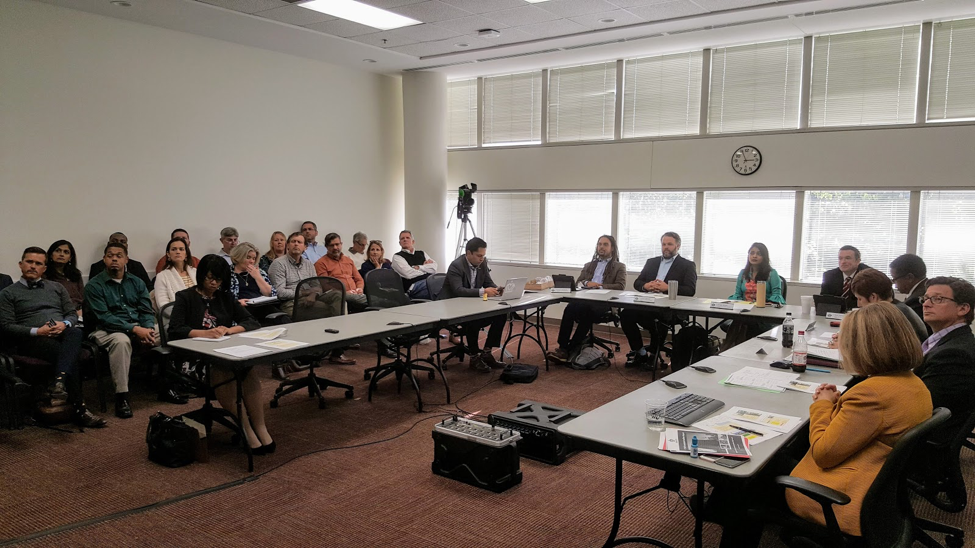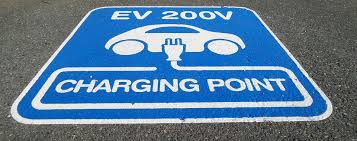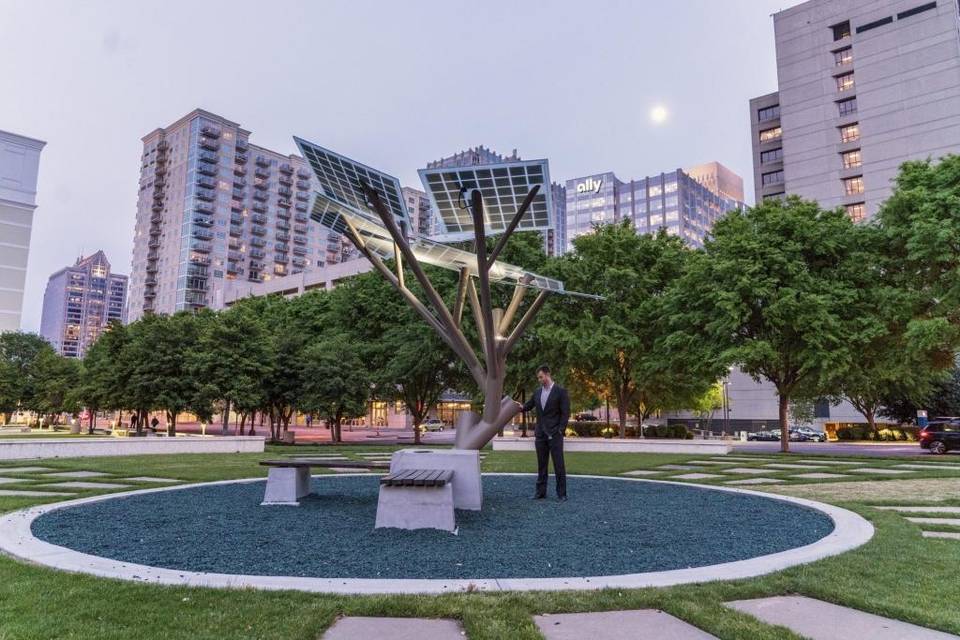Charlotte City Council Environment Committee presented with Strategic Energy Action Plan
At the October 22nd meeting of the Charlotte City Council Environment Committee, staff presented an update on the development of the Strategic Energy Action Plan (SEAP).

Background
On June 25th, the Charlotte City Council unanimously passed the resolution for a “Sustainable and Resilient” Charlotte. This is a comprehensive resolution that calls for the city government to source 100% of its energy used in its own buildings and fleet from zero-carbon sources by 2030. It also creates an action plan for dramatically reducing city-wide greenhouse gas (GHG) emissions by 2050 with short, medium and long term goals.
City staff has worked with Envision Charlotte and Carbon Captured Ltd. to perform a greenhouse gas emissions inventory and develop the SEAP. The SEAP will provide a pathway for necessary capital investments and operational changes to reduce per person greenhouse gas emissions in all sectors from a 2015 baseline measure of 12 tons of carbon dioxide equivalent (CO2e). CO2e is a metric that takes into account different greenhouse gases in a common unit of measurement. The goal is to reduce per person CO2e emissions to 7 tons in 2030 and less than 2 tons in 2050. The plan would be in alignment with the Global Covenant of Mayors commitment that former mayors Clodfelter and Roberts had signed on the city’s behalf as well as the Paris Climate Agreement.
Content
It’s important to keep in mind that the SEAP is a living document. Every two years, progress will be benchmarked and tracked by City Staff. The SEAP will be updated to ensure the City is moving toward its 2030 and 2050 goals. Formal updates will take place to account for policy changes, technological innovations, and shifting of resources. View the first draft of the SEAP here.
The SEAP focuses on buildings, transportation, and energy generation built on a core foundation of innovation and workforce development. It outlines a five stage approach to zero carbon emissions:
- Shift Energy Demand
- Reduce peak electricity demand by shifting time of use.
- Reduce energy consumption
- Use less energy
- Change the energy we consume
- Use different types of energy
- Generate energy on-site
- Procure the rest (only when the above options have been exhausted)
- Contract to purchase only zero-carbon sourced electricity.

The SEAP contains 11 linked action areas. The purpose of these action areas is to achieve the goals set forth in the resolution by creating an environment that allows for new ways of operating. They are designed to create new workforce development opportunities and to support the City’s efforts to increase equity and economic opportunity.
Action Areas:
- Structural Change
- Initiate City-Wide Communication Campaign
- Establish Public-Private-Plus Partnerships
- Develop and Implement Resilient Innovation Districts
- Strive Toward 100% Zero Carbon for Municipal Buildings by 2030
- Strive Toward 100% Zero Carbon Municipal Fleet by 2030
- Near Zero Carbon Non-Municipal Buildings by 2050
- Facilitate Rapid Adoption of Sustainable Modes of Transportation
- Develop and Implement Strategy for Deploying Low-Carbon Infrastructure Generation
- Develop a Green Workforce Pipeline in Support of Energy Transition
- Develop Smart Data Approaches
The SEAP will be rolled out in a two-phase approach. The SEAP released this week includes high-level recommendations about how Charlotte will strive toward zero-carbon facilities and fleet. Internal operational efforts for the transition of Charlotte’s fleet and facilities will be presented in more detail as an appendix to the SEAP, to be updated regularly. These details will be released after November 12. The overall goals and plan presented will be supplemented with at the next Environment Committee meeting with implementation, cost information, and data to support early actions recommended to move toward aspirational goals. City staff will combine the SEAP with the implementation and cost plans for a complete document to be considered for Council approval in early December 2018.
Working groups will be formed to help with the implementation of the SEAP. These will consist of two internal working groups focused on Buildings and Fleet, and four external working groups focused on Buildings, Transportation, Energy Generation, and Workforce Development. There will also be a Budget and Finance group. Stakeholder engagement will continue as well as meetings with the Content Expert Advisory Group.
City staff also laid out their current track record with respect to their fleet and facilities and short term goals for each. These goals included efforts to expand EV vehicle charging stations and a portfolio-wide solar installation assessment.

Takeaway
This first draft of the SEAP is very exciting. The focus on buildings, transportation, and energy generation is comprehensive while also focusing on innovation and workforce development. The plan outlines a logical approach for reducing emissions with relevant action areas and opportunities for input and engagement throughout.
It is very encouraging to see how city departments are working together to plan the implementation of the SEAP and use it in all of their building and fleet decisions. The City also hopes to collaborate with other cities on best practices and group procurements. It’s also great to see this is a living document with structures in place for regular review and updates.
Make sure you share your feedback on the draft document by November 5th!
Next Steps
November 5th
- The public is invited to provide feedback by November 5th.
- This is also when the next Stakeholders meeting will take place.
November 13th
- The Environment Committee will meet again to go over cost and implementation information.
- They will vote on moving the SEAP to the full Council.
November 13th – December 3rd
- Council members will have small group meetings with staff to go over the details of the SEAP.
December 3rd
- The City Council will have an Action Briefing on the SEAP
December 10th
- The City Council will consider and vote on the SEAP.
October 22, 2018 Environment Committee Agenda. Watch the video stream.
The Environment Committee will meet on 11-12-2018.
City Council Members in attendance:
- Dimple Ajmera, At-Large, Chair, Environment Committee
- Larken Egleston, District 1, Vice-Chair, Environment Committee
- Gregory A. Phipps, District 4, Member, Environment Committee
- Matt Newton, District 5, Member, Environment Committee
- Braxton Winston, At-Large, Member, Environment Committee
- Tariq Bokhari, District 6
Thanks for reading!
As a nonprofit, community support is essential for us to keep doing what we do — including providing free articles like this. If you found this article helpful, please consider supporting Sustain Charlotte.
Want to stay in the loop? Subscribe to our weekly newsletter and follow us on Instagram, Facebook, and Twitter.
